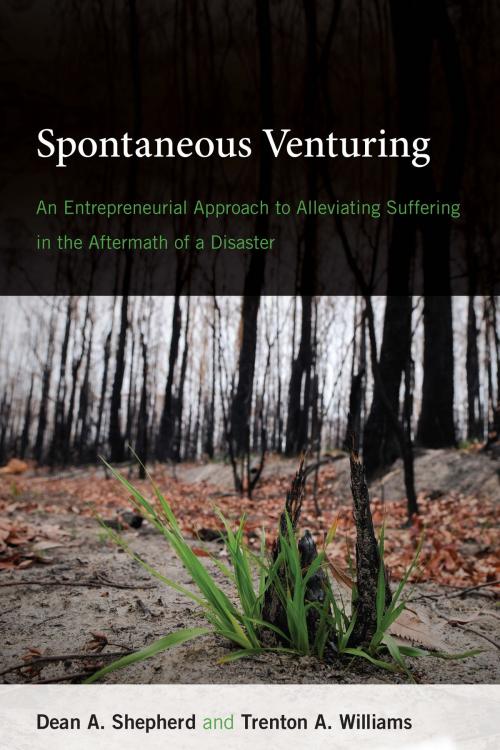Spontaneous Venturing
An Entrepreneurial Approach to Alleviating Suffering in the Aftermath of a Disaster
Business & Finance, Career Planning & Job Hunting, Entrepreneurship, Entrepreneurship & Small Business| Author: | Dean A. Shepherd, Trenton A. Williams | ISBN: | 9780262349604 |
| Publisher: | The MIT Press | Publication: | December 21, 2018 |
| Imprint: | The MIT Press | Language: | English |
| Author: | Dean A. Shepherd, Trenton A. Williams |
| ISBN: | 9780262349604 |
| Publisher: | The MIT Press |
| Publication: | December 21, 2018 |
| Imprint: | The MIT Press |
| Language: | English |
Identifying a new approach to disaster response: spontaneous, compassionate, and impromptu actions to alleviate suffering.
In Spontaneous Venturing, Dean Shepherd and Trenton Williams identify and describe a new approach for responding to disaster and suffering: the local organizing of spontaneous, compassionate, and impromptu actions—the rapid emergence of a compassionate venture. This approach, termed by the authors “spontaneous venturing,” can be more effective than the traditional “command-and-control” methods of large disaster relief organizations. It can customize and target resources and deliver them quickly, helping victims almost immediately. For example, during the catastrophic 2009 bushfires in Victoria, Australia—the focal disaster for the book—residents organized an impromptu relief center that collected and distributed urgently needed goods without red tape. Special bonds and friendships formed among the volunteers and victims; some were both volunteer and victim. Many victims were able to mobilize resources despite considerable personal losses.
Shepherd and Williams describe the lasting impact of disaster and tell the stories of Victoria residents who organized in the aftermath of the bushfires. They consider the limitations of traditional disaster relief efforts and explain that when victims take action to help others, they develop behavioral, emotional, and assumptive resilience; venturing leads to social interaction, community connections, and other positive outcomes. Finally, they explore spontaneous venturing in a less-developed country, investigating the activities of Haitians after the devastating 2010 earthquake. The lesson for communities hit by disaster: find opportunities for compassionate action.
Identifying a new approach to disaster response: spontaneous, compassionate, and impromptu actions to alleviate suffering.
In Spontaneous Venturing, Dean Shepherd and Trenton Williams identify and describe a new approach for responding to disaster and suffering: the local organizing of spontaneous, compassionate, and impromptu actions—the rapid emergence of a compassionate venture. This approach, termed by the authors “spontaneous venturing,” can be more effective than the traditional “command-and-control” methods of large disaster relief organizations. It can customize and target resources and deliver them quickly, helping victims almost immediately. For example, during the catastrophic 2009 bushfires in Victoria, Australia—the focal disaster for the book—residents organized an impromptu relief center that collected and distributed urgently needed goods without red tape. Special bonds and friendships formed among the volunteers and victims; some were both volunteer and victim. Many victims were able to mobilize resources despite considerable personal losses.
Shepherd and Williams describe the lasting impact of disaster and tell the stories of Victoria residents who organized in the aftermath of the bushfires. They consider the limitations of traditional disaster relief efforts and explain that when victims take action to help others, they develop behavioral, emotional, and assumptive resilience; venturing leads to social interaction, community connections, and other positive outcomes. Finally, they explore spontaneous venturing in a less-developed country, investigating the activities of Haitians after the devastating 2010 earthquake. The lesson for communities hit by disaster: find opportunities for compassionate action.















